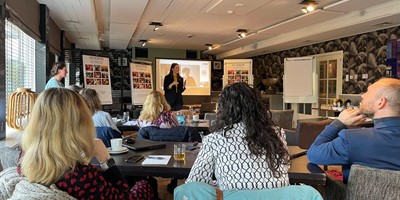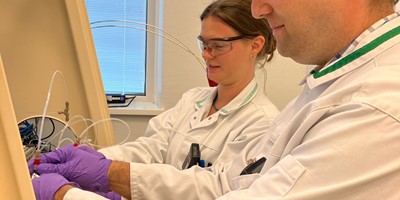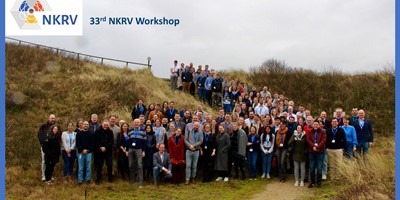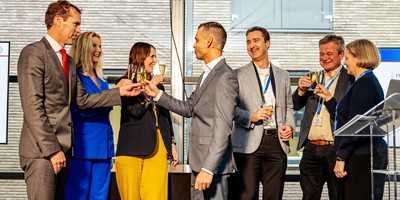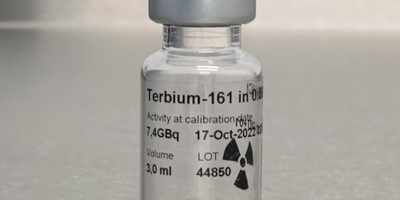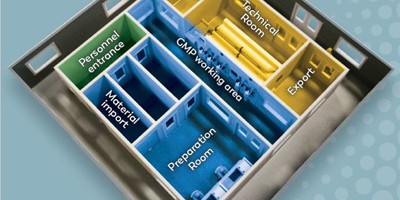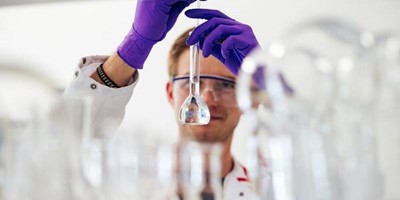Knowledgebase
The new FIELD-LAB establishment, dedicated to the production of medical isotopes for cancer treatment and which opened in December 2023, will operate under GMP standards. According to Harry Hendrikse, a professor Translational Radiopharmacology at Erasmus Medical Center and one of the GMP consultants who initially worked on this project, that is not an easy task.
Erasmus Medical Center in Rotterdam and NRG PALLAS teamed up last years within FIELD-LAB to realise a study on the stability and efficacy of different ligands in combination with Lead-212 for the treatment of NETs. And the results were promising.
Representing Kansen voor West, Jeroen Elzenaar, Ruud van Raak en Tessa de Boer visited Petten to meet with Karlijn van der Schilden, Paula van der Vlies, Angelique de Boer-l'Istelle en Vinod Ramnandanlal. Aim was the final discussion for FIELD-LAB: one of the largest Kansen voor West II projects.
To promote collaboration and to inspire one another, FIELD-LAB hosted a partner meeting on the 26th of March at the Veranda in Amstelveen. Delegates of all partners were present to inform their fellow participants about their projects and share their expertise.
In a significant achievement for the field of radionuclide production, a dedicated team consisting of scientists of NRG|PALLAS and Future Chemistry, has successfully completed the SAT for their state-of-the-art, custom made Lu-177 no carrier added (n.c.a.) preparative High Performance Liquid Chromatography (prep-HPLC) system.
Last week, we gladly hosted the 33rd NKRV workshop at our premises in Petten. The mission of this Dutch Society for Clinical Radiochemistry (NKRV) is to stimulate research and education in radio(pharmaceutical)chemistry as well as the application of radiopharmaceuticals in the clinic.
After years of preparation, the FIELD-LAB facility in Petten, the Netherlands, has officially opened its doors on 7 December. This brand new facility will help accelerate the development of new nuclear medicines for the treatment of cancer.
NRG and TerThera signed an agreement for irradiation services in the High Flux Reactor in Petten, the Netherlands to produce Terbium-161. The non-carrier-added (NCA) Terbium-161 is produced by neutron irradiation of highly enriched Gadolinium-160 targets in the Dutch research reactor.
New essential analysis equipment for Quality Control has been installed in FIELD-LAB. This equipment will be used to perform measurements on isotopes, produced by FIELD-LAB in the near future, to establish if the isotope is up to GMP (Good Manufacturing Practice) standards and, consequently, can be used in patients.
Already in 2001, NRG supported the development of Peptide Receptor Radionuclide Therapy with carrier added Lutetium-177 (Lu-177 c.a.) by the supply of Lutetium-177 trichloride as a radiochemical. Nowadays, Lu-177 no carrier added is preferably used. “Lu-177 n.c.a. has a higher specific activity and thus radiolabeling efficiency, than lu-177 c.a.”, according to Marion Chomet, lead scientist at FIELD-LAB. Chomet and her colleagues are now fine-tuning and finalizing their custom made lutetium-177 n.c.a. process. But there are several challenges and practical considerations that they are facing.





